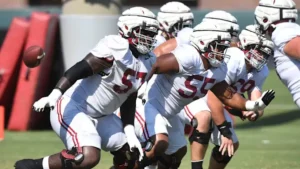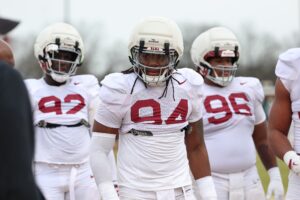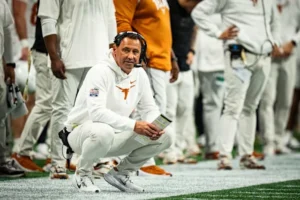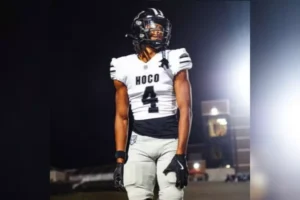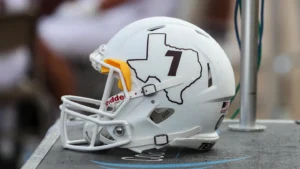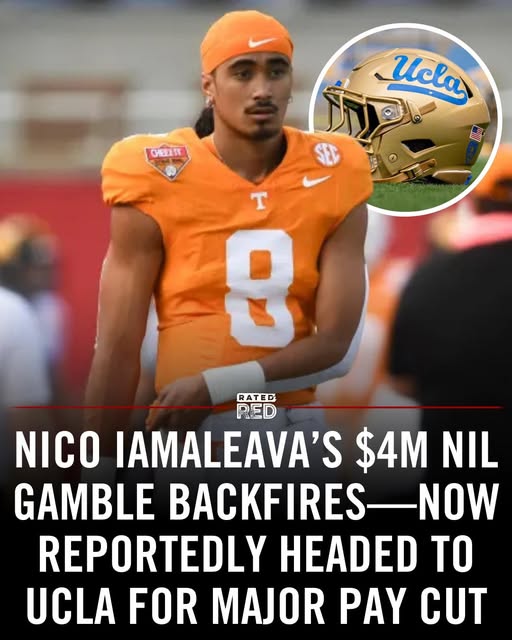
Nico Iamaleava’s decision to transfer from the University of Tennessee to UCLA has become a focal point in discussions about the evolving landscape of college football, particularly concerning Name, Image, and Likeness (NIL) rights. This move is not just a change of scenery for the young quarterback but also a significant shift in his financial trajectory, highlighting the complexities athletes face in the NIL era.
Background: A Promising Start at Tennessee
Iamaleava, a five-star recruit from Long Beach, California, committed to Tennessee in 2022, reportedly securing an $8 million NIL deal over four years with the Spyre Sports collective . His freshman year was marked by impressive performances, including throwing for 2,616 yards and 19 touchdowns, leading the Volunteers to a 10-3 record and a College Football Playoff appearance .
However, despite these achievements, tensions began to surface between Iamaleava and the Tennessee coaching staff. Reports indicate that he felt sidelined during key moments of the season, with the coaching staff opting for more conservative playcalling that limited his ability to showcase his skills. Additionally, disagreements over the level of autonomy he should have in making decisions on the field and a perceived lack of clear communication regarding his future with the team contributed to his decision to enter the transfer portal .
The Move to UCLA: A Financial Downturn
UCLA, entering its first Big Ten season under new head coach Deshaun Foster, offered Iamaleava a fresh start. However, the financial implications of this transfer are noteworthy. Reports suggest that Iamaleava’s NIL deal with UCLA is significantly less lucrative than his agreement with Tennessee, with some estimates placing the new deal at approximately $1 million per year, a substantial decrease from his previous arrangement.
This pay cut underscores the disparities in NIL opportunities across different programs and conferences. While Tennessee’s affiliation with Spyre Sports provided Iamaleava with a substantial financial package, UCLA’s NIL offerings appear to be more modest, reflecting the varying resources and strategies employed by different institutions in the NIL space.
The Broader Implications for College Football
Iamaleava’s transfer and the associated financial shift highlight several key issues in the current college football landscape:
- NIL Disparities: The significant difference in NIL compensation between Tennessee and UCLA illustrates the uneven playing field that exists among programs. Schools with robust NIL collectives can offer substantial financial incentives, while others may struggle to provide comparable opportunities.
- Player Autonomy and Expectations: The situation emphasizes the growing expectations placed on student-athletes to perform at elite levels while navigating complex NIL agreements. The pressure to meet both athletic and financial expectations can impact an athlete’s experience and decisions.
- Program Stability and Recruitment: The movement of high-profile players like Iamaleava can influence recruiting strategies and program stability. Prospective recruits may consider the financial aspects of NIL deals when choosing a program, potentially altering traditional recruitment dynamics.
Nico Iamaleava’s transfer from Tennessee to UCLA is more than just a change of uniform; it is a reflection of the evolving dynamics in college football driven by NIL rights. While seeking a better fit for his athletic development, Iamaleava also faces the reality of reduced financial compensation, highlighting the challenges athletes encounter in navigating the complexities of NIL agreements. This development serves as a case study in the ongoing transformation of college athletics, where financial considerations increasingly intersect with athletic pursuits.
